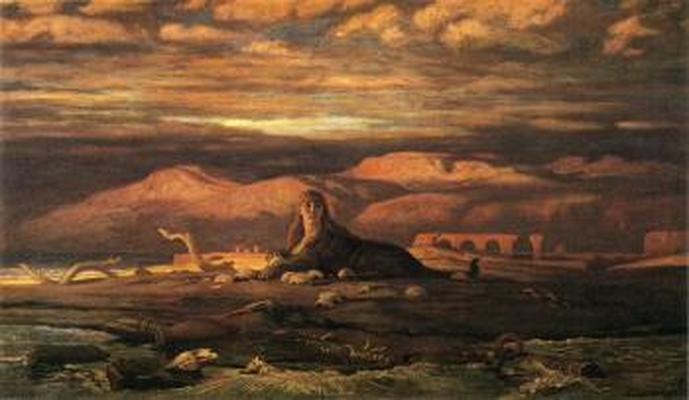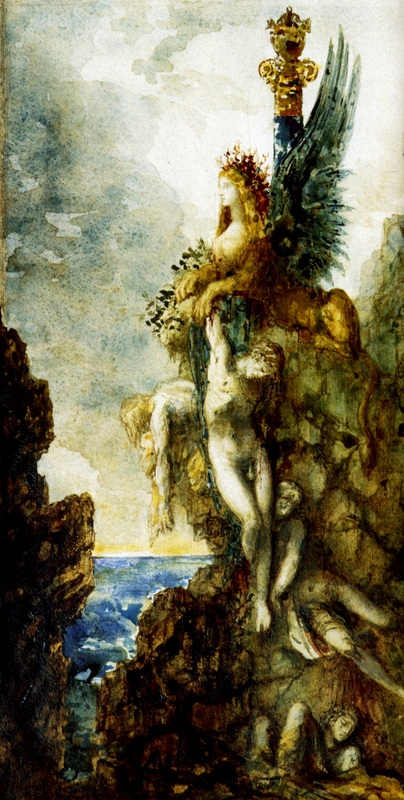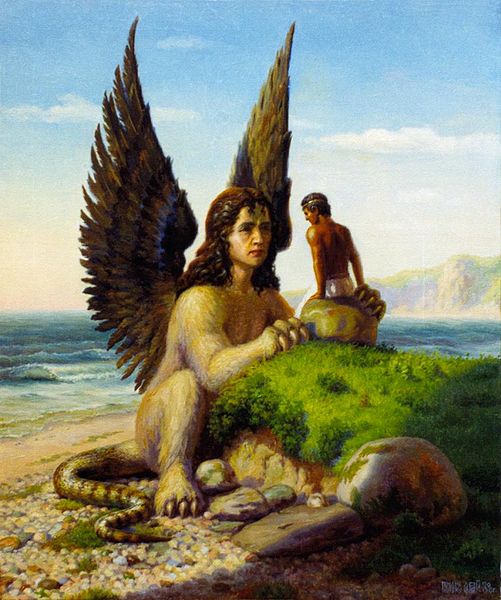THE SPHINX IN GREEK MYTHOLOGY
Today, the Sphinx is a creature most closely associated with Egypt, for there stands a giant Sphinx guarding the entrance to the Giza plateau, and at other temple complexes, avenues of the creature lie in waiting. Ancient Greece though also had its Sphinx, a single monstrous creature that terrorised the Greek city of Thebes.
The Greek Sphinx
The Greek Sphinx was said by Hesiod to be the offspring of Orthrus, the two headed monstrous dog, and the Chimera, the fire breathing monsters. More commonly though, the Sphinx was said to be the daughter of Typhon and Echidna, and this parentage would make the Sphinx sibling to the likes of the Nemean Lion, the Chimera, Ladon, Cerberus and the Lernaean Hydra.
Some ancient sources even deigned to give the Sphinx a name, Phix, although the word Sphinx is normally thought to originate from the Greek “to squeeze”.
Some ancient sources even deigned to give the Sphinx a name, Phix, although the word Sphinx is normally thought to originate from the Greek “to squeeze”.
Descriptions of the Sphinx
|
The Sphinx in Greek mythology was said to be a female monster, with the head of a woman, a lion’s body, the wings of an eagle and possibly a serpent’s tail.
This imagery of course differs from the Egyptian Sphinx which is normally simply that of a lion’s body, and the head of a man. The two Sphinxes also differed in temperament for whilst the Egyptian Sphinx was thought to be a beneficial guardian, the Greek Sphinx had murderous intent. |
|
The Sphinx comes to Thebes
|
Initially, the Sphinx was said to reside somewhere in Aethiopia, the unknown region of Africa, but was then summoned by a deity to Boeotia, for it was required to bring disruption to the city of Thebes.
Ancient writers were not exactly clear about who did the summoning, but commonly Hera or Ares were blamed. Hera was said to be angry with the city of Thebes and its residents following the rape and abduction of Chrysippus. Alternatively, Ares sought to punish Thebes for the previous actions of its founder, Cadmus, in killing the dragon of Ares. Having been summoned to Thebes, the Sphinx would reside in a cave upon Mount Phicium (Phikion), and would observe all those who passed by, as well as occasional ravaging of the land surrounding Thebes. |
Oedipus and the Riddle of the Sphinx
|
Those who passed near to the Sphinx would be asked a riddle by the monster; the riddle of the Sphinx being - “What animal is that which in the morning goes on four feet, at noon on two, and in the evening upon three?”
Those who could not solve the riddle, which was everyone, was killed by the Sphinx. Many Thebans perished by the beast, including Haimon, the son of King Creon of Thebes; and following the loss of his son, the king proclaimed that the person who rid the land of the Sphinx would be presented with the throne. The hero Oedipus took up the challenge, and deliberately went to Mount Phicium to encounter the Sphinx. The Sphinx of course asked the riddle of Oedipus, and the young man simply answered “Man”. A man in childhood would move on hands and knees (four feet), during adulthood would walk on two feet, and in old age would make use of a cane or staff as a third foot. As soon as Oedipus correctly solved her riddle, the Sphinx threw herself off of the mountainside, and was dashed on the mountainous slope, thus ended the life of the Sphinx. |
|
|
|


